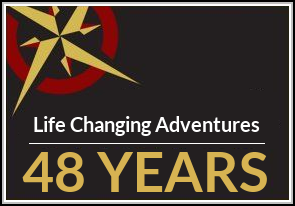International:
North America:
Menu

International:
North America:
- Home
- Kilimanjaro Climb
- Kilimanjaro Planner
- Other Treks
- About Us
- Dates + Prices + Booking
- Contact
International:
North America:

International:

16 Days
Trekking and riding with the Mongolian nomads is an adventure that will stir your soul. The landscape is wild and untamed and will challenge even the most seasoned hiker or horse rider. Altitudes fluctuate between 6,400 ft. and 10,500 ft.
Plan to be in great hiking or riding shape for this exciting trek led by Eddie Frank and his team of nomads. With his years of experience trekking through Mongolia’s Altai Mountains, Eddie knows the terrain like the back of his hand and has forged close relationships with the his nomad team truly authentic adventure.
Tusker’s owners Eddie and Amy Frank have a deep love for Mongolia. They pioneered this incredible trekking experience together with the local nomads back in 2006. It all started when they learned about a total solar eclipse that was to occur in Mongolia in 2008.
Eddie and Amy had both dreamed of exploring Mongolia for years. In fact, Eddie’s family had a legend that talked about ancient Mongolian ancestry. So, in 2006 Amy and Eddie set out on an exploratory expedition to scout a route for the eclipse trip. Once there, they discovered an area so breath-taking, that they teamed up with a local guide and built what is now one of Tusker Trail’s most exciting treks.
Before you join up, you’re welcome to discuss your climb with your Mongolia guide EDDIE FRANK at our US Lake Tahoe office. He’ll give you a guide’s perspective and professional advice that will prepare and excite you for your upcoming Mongolian journey.

“Tusker Trail is a trekking company with outstanding service and provided an impeccably well-organized trip to one of the most remote regions we have ever visited. Kudos to Eddie, Amy and the entire crew. These guys made each trekker feel unique. The Tusker experience and this trip were far beyond my (already high) expectations.”
– 5-Star Review by “Rob M.”
HIKERS MUST BE IN EXTREMELY GOOD PHYSICAL CONDITION
This is no ordinary trek; it demands full days of physical activity, either hiking, riding a horse, or both. Fit trekkers of all ages have joined this trek. You travel over uneven ground up to 14 miles/8 hours a day in remote terrain. On two of the days we’ll be going up to 10,200 ft. The weather can be cold, dropping below freezing in some places at night. Hikers should be in good hiking condition, while riders are advised to have some experience on horseback and to be firm in the saddle. Your guide, Eddie Frank is a seasoned rider and runs regular riding clinics.
The adventure of your life deserves the grub of your life. While expedition meals are usually about sustenance, they should also be about firing up your taste buds.
Tusker flies in Alex Minja from Tanzania for every Mongolian expedition. Alex is our head Kilimanjaro mountain chef, and he heads up the Mongolia Adventure Kitchen, setting you up with stunning meals on the nomad trail.
As part of our Kilimanjaro cooking team, Alex was trained by the Culinary Institute of America, which is evident in every loving spoonful he serves up. While you won’t dine on fine china, your mind will be blown by the master’s culinary marvels. His meals aren’t just about tantalising your taste buds but are also engineered to keep you well fueled for long challenging days on the trail.
“After an Adventure Kitchen meal, you feel like you’ve just had a birthday. As if an angel from heaven’s kitchen landed in camp and mixed in some fairy dust in the dessert.”
The start and end point of our trek is the town of Bayan Ulgii. Here we stay in a traditional Mongolian Gercamp, owned and run by a close friend of ours, named Aku. She has created the camp as a warm inviting place for us to stay, on our way to and from the Altai Mountains.
What is a Ger? A Ger is a round dwelling that has been used as a home by the nomads since the Mongols created a lifestyle centered on raising livestock on the steppe about 3,000 years ago. It is portable, easily put up, and can resist extreme winds and temperatures way below zero. A Ger is made of felt lining, wooden supports and a round “window” at the top to allow air to circulate. The structure is a wooden lattice attached together with rope. An entire family lives inside one Ger, which appears like a white dot on the Mongolian plains.
Ulaan Bataar · Tuushin Hotel
In the local Ulgii market we stock up with food and camp supplies for the entire expedition. Just like in the old days, camels carry the entire camp and all our supplies and gear.
Our camp crew consists of head guide Eddie Frank, and a local assistant guide, Chef Alex, Karbai our main horse guide, 6-10 camel guides and 6 camp assistants. These are local nomads who look after the 12 camels and 30 horses that accompany us all the way.
Even if you only plan to hike, we will allocate a horse and saddle to you – just in case you change your mind. We’ve found that once our trekkers take a couple of riding lessons from Eddie, they discover how much fun it is to ride with the Mongolian nomads as we travel across their ancient lands.

Trekking through the Mongolian wild takes us to some remote areas in the wide expanses of the Central Asian mountains and valleys. When Eddie and Amy were first scouting this award-winning trek, they realized that a 10-hour evacuation on land to the nearest hospital would be extremely challenging. And as helicopters are rare in Mongolia, they relied on fixed wing aircraft when an overland evacuation was not suitable.
Back in the early days there were no usable airstrips, so we did things the Tusker way: We reconstructed two defunct airstrips. Tusker Trail partnered with Ripcord, our evacuation company, to rebuild two landing strips in the remote backcountry of western Mongolia. These additional runways helped complete a network of landing strips across rural western Mongolia. In addition to providing us with faster access during emergencies, they are valuable assets that are used year-round by humanitarian organizations.
